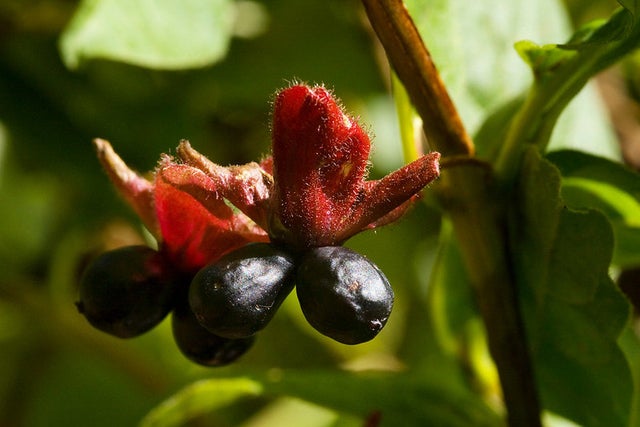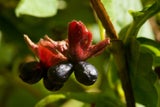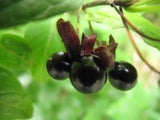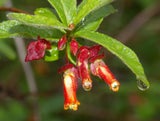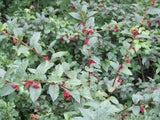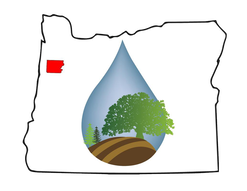- Trees and Shrubs
- >
- Black Twinberry
Black Twinberry
SKU:
$1.80
$1.80
Unavailable
per item
Lonicera involucrata - Bare root, 12"-18"
Habit: fast growing, upright, deciduous shrub with oval shaped opposite leaves that are often hairy beneath.
Black twinberry's delicate yellow flowers grow in pairs and are subtended by two bracts that become a vibant red as the season progresses. The flowers are visited by hummingbirds and other pollinators and the black berries are enjoyed by birds, making it a perfect addition to the wildlife garden. It can grow in full sun and shade but requires moist soil, even tolerating some seasonal flooding. The berries should be avoided by humans.
photo credit: Lonicera involucrata, Peggy A. Lopipero-Langmo, Flickr, (CC BY 2.0)
Sold out

